REDUCING SEASONAL ALLERGIES IN Naperville
While it’s easy for some of us to enjoy the summertime, there are a lot of people that are afflicted with recurrent allergies. Did you know that grass and the herbs that increase in grass are one of the biggest contributors to allergies?
Based on the American Academy of Allergy Asthma & Immunology, allergic reactions to turfs are very common. Grass allergies can show in multiple ways, comprising nasal symptoms (runny nose, stuffiness, sneezing, asthma, and eye symptoms (irritating, watery/red eyes). A lot of persons might furthermore have skin reactions (hives or skin welts) after being in contact with turfs, though this is far less usual. Turf allergies are prevalent since turf pollen scatters in the wind, which is opposite from pollen that travels by insects, so you are more probably to inhale it and consequently develop symptoms. In nearly all areas of the United States, including Naperville, grass often pollinates in the late spring season (April through early June).
If you’re among the populace suffering from periodic allergies, artificial grass will help alleviate some of your symptoms without the requirement of medications. Look down to discover more.
DOES ARTIFICIAL TURF GET RID OF ALLERGIES?
Well, it depends. Not every person is allergic to only turf. Many are allergic to the pollen that bushes and herbs propagate, too. The predominant habitual allergy to grass is named hay fever. If you’ve gotten sick with hay fever in the past, you know just how miserable it may be. It can be difficult to avoid turf allergens entirely, however you can clearly reduce your exposure by getting rid of the natural grass on your house.
When you transform your natural grass backyard to artificial grass, the pollen count will be significantly reduced. While there will yet be pollen in the proximity from trees and plants, grass pollen propagation will be suppressed in your proximate environs.
WILL ARTIFICIAL TURF HELP MY DOG’S ALLERGIES?
Does your dog is afflicted with allergies, too? It’s getting more common for dogs to suffer from pollen allergies nowadays. They will show identical symptoms you might experience, like sternutation and watery eyes. Allergy pharmaceuticals can turn your dog dazed, so they won’t feel congruent when the pollen count is elevated.
It’s an usual misunderstanding that you can’t buy synthetic turf if you possess dogs. However, we’re here to prove to you that is false! If you own dogs, you can buy pet-specific turf that is made solely for your pet. Artificial turf for dogs will give you the greatest performance for high traffic areas and is manufactured with a unique backing system so liquid fluids can flow through rapidly. Solid waste is a breeze to clear up, as well — only let it solidify before getting rid of it and sprinkle with a nozzle for anything that could be left behind.
WHAT EXTRA UPSIDES ARE THERE TO ARTIFICIAL GRASS?
Low Maintenance: Synthetic grass doesn’t require the same extent of care that natural turf does. You won’t be in obligation to remove, trim, fertilize, or water. This contributes to end allergies and other breathing afflictions in their tracks being that there’s no fine dust or airborne contaminants from the turf itself.
Durable: When you get quality artificial grass, you can expect it to be durable. At Southwest Greens, we develop our grass with the most cutting-edge materials in the market. It’s UV-resistant and designed to deal with high traffic areas, extreme climate, and temperature variations. So whether it’s spring, summer, fall, or winter, your turf will always be grassy and fresh-looking.
Saves Water: With water deficit getting an increasingly notable issue for desertification-vulnerable regions, artificial grass is a great choice to reduce your water consumption. Did you know that about ⅓ of all domiciliary water expenditure (which totals close to 9 billion gallons daily) is used for landscape irrigation? So if you have had enough of irrigating your lawn and paying high quotes to get it done, artificial turf is the convenient product.
Decreases Pollution: Synthetic turf doesn’t demand the same harsh components that traditional grass demands to look its verdant. Therefore, it eliminates the need for herbicides and pesticides, which implies you and your family and friends (pets included) will not be susceptible to as many unhealthy substances. Additionally, you won’t have to be afraid of those components running off into water systems through severe rains.
DOES SYNTHETIC GRASS GET HOT?
It’sa recurrent knowledge that artificial turf can get warm, especially in the summer when the sun is shining all day. That’s why we’ve developed HydroChill®. This innovative technology is integrated with the grass infill to provide an average temperature reduction of 30°-50°. It functions similarly to how transpiration cools us. HydroChill® holds humidity from precipitations or a rapid shower from the hose to put into action the power of evaporation to remove|warmth naturally.
This technology provides total value when the sun is closest to the Earth, as displayed in the solar radiation timeline. The rotation of the Earth is additionally behind hourly changes in daylight, thus making HydroChill® more helpful during the warmer part of a clear day when most needed.
